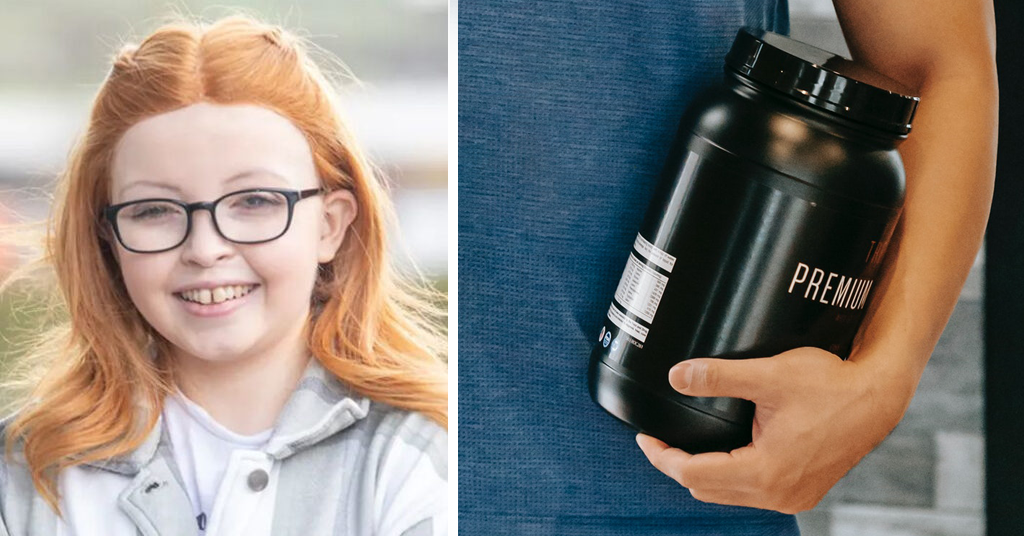Sponsored by So Good Juice – 100% Organic | Home Sown | Home Grown Juices made in the North West – www.sogoodjuice.com
Donegal Nutritionist Sorcha McElchar from Sorchas Healthy Living takes a look at supplements and sports supplements and whether there are better ways to get the nutrition we need.
Many people take supplements. It could be to fill a gap for nutritional needs you aren’t getting from your diet because of allergies. Intolerances or dietary preferences. Or maybe you’re taking supplements to helps with weight loss, muscle growth or performance improvements. Whatever the reason is the supplement industry is a multi-billion-dollar industry.
The European Food Safety Authority defines a food supplement as – “Concentrated sources of nutrients or other substances with a nutritional or physiological effect that are marketed in ‘dose’ form. In the EU & UK food supplements are regulated as foods not medicine. “
I always say that getting your nutrients from food sources is always better than getting them from supplementation. Obviously, it’s not always possible and supplementation may be necessary. However, if you believe taking supplements for a particular nutrient is more beneficial there is very little evidence supporting taking supplements to treat or prevent chronic disease. In fact, high doses of certain supplements can cause serious side effects. Some are irreversible and life-threatening.
For example, did you know that people who smoke or have a history of smoking may increase their risk of developing lung cancer (if it isn’t high enough!) and cardiovascular disease if they take beta carotene (vitamin A) supplements?
Most vitamins and minerals have what’s called an ‘Upper Limit’ (UL). This is the highest daily dose of that vitamin or mineral that is safe to consume. Water soluble vitamins C and B don’t have a UL (except folate and Niacin) as any excess is excreted. Exceeding the UL of vitamin, A or vitamin D for long periods of time can cause hypervitaminosis A or hypervitaminosis D. Both are very serious but very rare and can only really occur from overconsumption of supplements containing vitamin A or vitamin D. That’s why it’s so important to talk to yoru dietician, doctor or even your pharmacist if you feel you need to start taking supplements so they can recommend a safe dose.
Body-building and sports supplements have grown in popularity over the years. Gym goers who want to increase muscle mass and improve physique for sports like weightlifting and other types of athletes usually take some sort of protein supplements. These supplements can also be used to curb appetite and aid weight loss. Yes, if you are doing a lot of intense physical activity your protein needs do increase, but personally I feel the same about protein supplements as I do about any food supplement. If you can get it from food, it’s much better!
People often purchase these supplements online without a lot of research and it’s important to note if you purchase protein supplements (or any supplement) from outside the EU aren’t subject to the same rigorous safety standards. You could be taking supplements that contains harmful and sometimes poisonous substances not labelled on the packaging. Several hospitalisations and deaths have been linked to these illegal supplements.
Like vitamin and mineral supplements, a prolonged diet high in protein could be linked to increased risk of developing Osteoporosis and kidney disease. It’s recommended that adults don’t consume any more than twice their recommended amount of protein per day. To calculate your recommended amount of protein, use the following equation.
0.8 (g of protein) x (your body weight in kg) = recommended amount of protein
If you’re an athlete, you might need to increase that to 1.2-2g of protein per kg of body weight.
In conclusion, the best way to get nutrients will ALWAYS be from food. Eating a balanced diet full of fruit & veg, wholegrains, lean protein sources and sources of healthy unsaturated fats will provide you with all the nutrients you need to feel healthy.
Tags:








